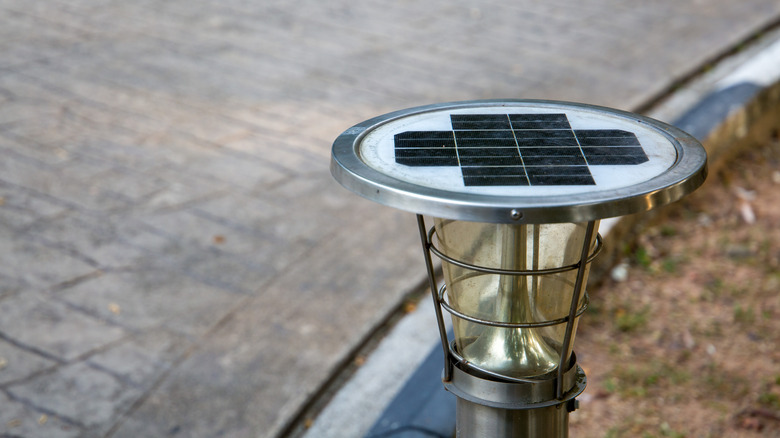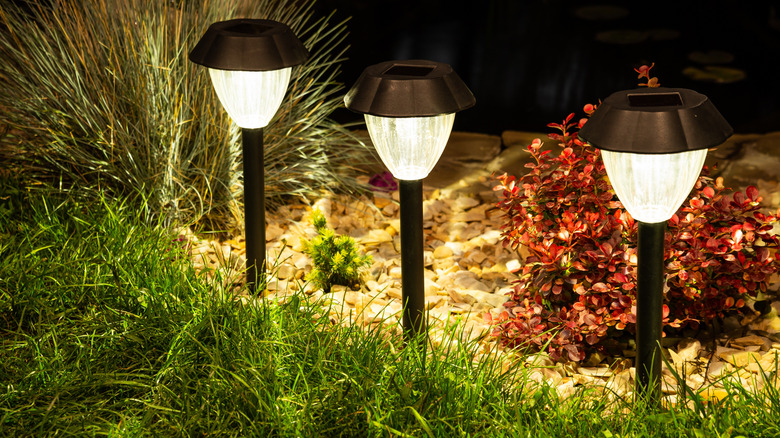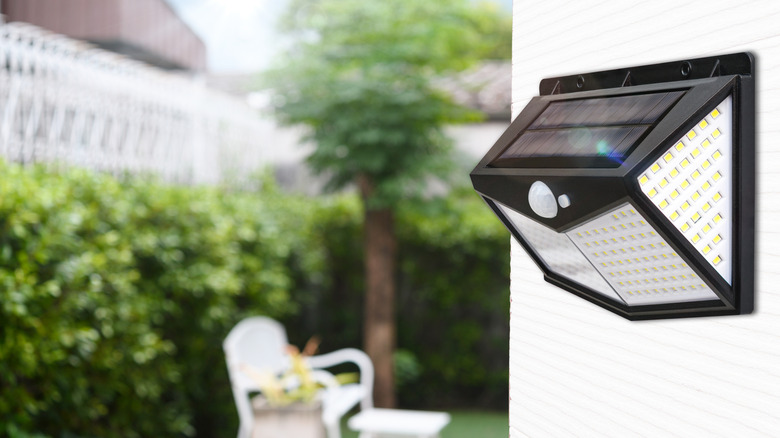Here's How To Choose The Right Outdoor Solar Light For Your Needs
Solar outdoor lights are becoming a lot more popular for homeowners because they just make sense. If the lights are going to be out under the sun all the time, then they might as well be solar-powered. This saves you the cost of powering them from your energy bill, plus they are great for the environment.
Solar lights are popular for residential properties, but they are so varied that choosing one for your home can be a daunting task. There are a ton of things to look out for when choosing your solar outdoor lights, from brightness to the capacity of the battery setup. However, one of the most important factors to consider is the type of solar light. Solar outdoor lights can come as timer-controlled, dusk-till-dawn, or motion-activated. The type of light you choose affects other factors, like battery life, and can change how you use the lights entirely.
Before making your choice, you should consider the reason why you need outdoor solar lights for your yard. You might want to shed light on your landscaping, illuminate some treacherous areas on your property, or enjoy the extra peace of mind that comes with a security light as your backyard lighting option. Whatever it is, your purpose for wanting outdoor lights will help to determine the important features to look out for in your solar light choice.
Time-controlled vs. dusk-till-dawn lights
Timer-controlled lights give you total control over when your outdoor lights will be on. With this setup, you can actually set it and forget it. Once you've programmed the lights to turn on and off at specific times, you don't have to worry about it again. Many homeowners set their outdoor lights to turn on in the evenings when they are needed and switch off at a specific time in the mornings. Beyond the convenience, this arrangement also conserves the batteries of the solar lights, allowing them to last longer. Another benefit is the added security. With timer-controlled lights, you'll be sure your home will be well-lit at night, which would serve to deter criminal elements from your property. You can even set a routine to simulate your presence and give off the impression that you're at home when you aren't.
Alternatively, you could opt for dusk-till-dawn lights. These come equipped with solar batteries and light sensors that detect when the sun goes down and turn on the lights. The lights get turned off at dawn when the sensors detect the sunrise. When considering security and battery life, they are also similar to the time-controlled versions. However, they're even more convenient than the time-controlled setup, as you don't need to set anything. Simply install it and let the light sensors do all the work. The only downside is that you don't have actual control of the timed system, so you are left to the whims of light sensors.
Motion-activated outdoor solar lights may be for you
Motion-activated outdoor solar lights are a great option for homeowners trying to improve their home security. These come equipped with a motion sensor that detects when people come within a certain range and turns on the lights. Then an internal timer is set, and if motion isn't detected at the end of that duration, the light switches off. This helps save energy and battery life by ensuring that your light only turns on when it's needed, rather than wasting energy when no one's around. This setup is also great for deterring potential intruders from your home. The lights act like automated sentries and alert you with bursts of light when someone comes near.
The downside to the motion-sensor solar light styles is that they aren't the most versatile. If you want to illuminate your landscaping, then they won't be ideal, as they will be off till something moves. Timer-controlled lights give you more control, but come with some tinkering that people may not want to be bothered with. And the dusk-till-dawn light sensors can be fooled by cloudy mornings and turn on. This is why hybrid setups, which combine dusk-till-dawn lights with a motion sensor, exist. This allows the light to turn on at dusk on a dim setting and brighten up when someone gets close.


